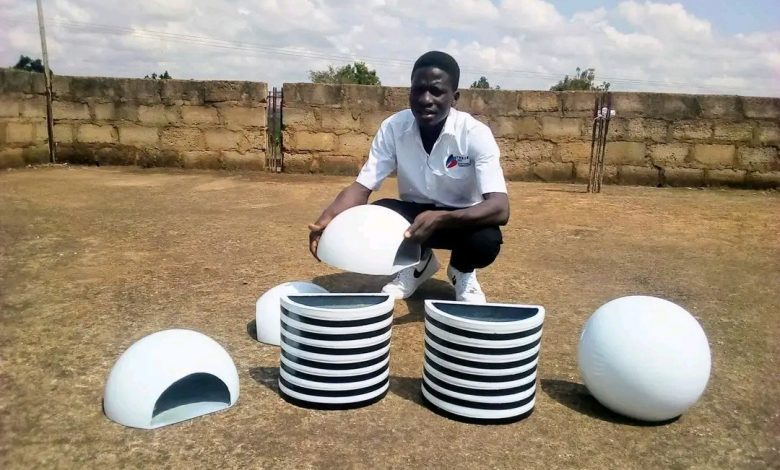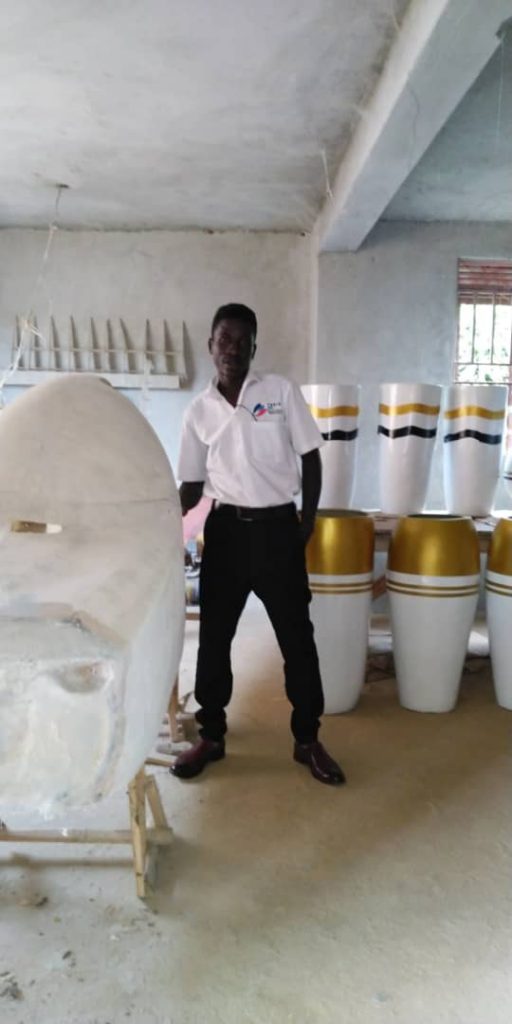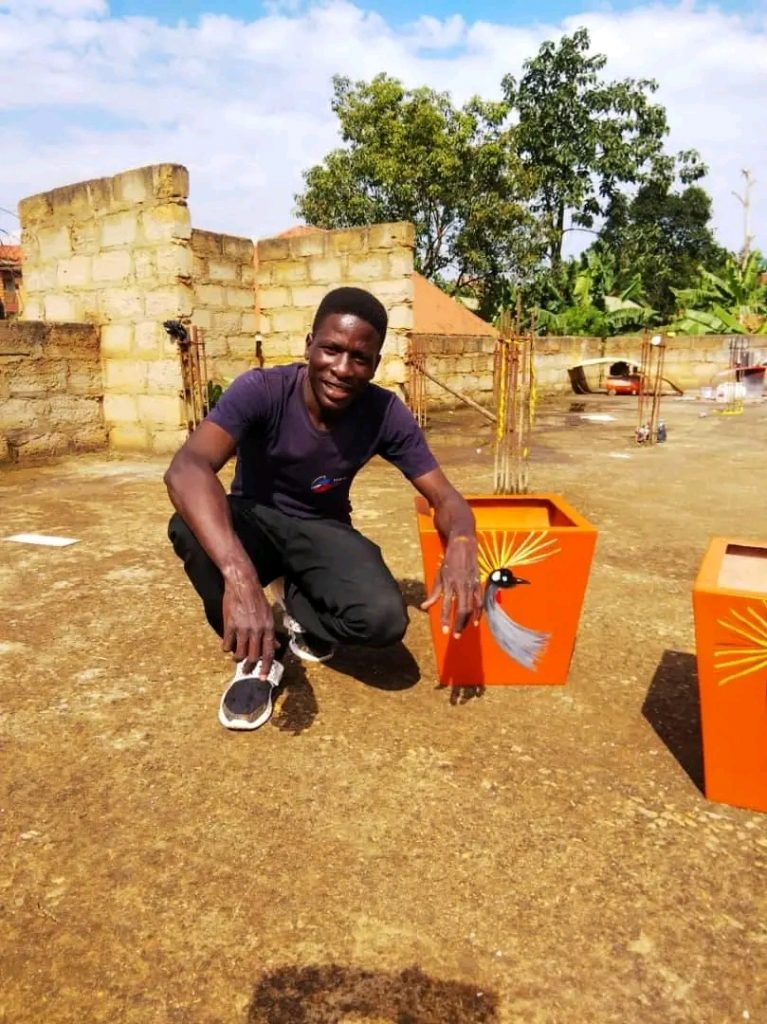
Agumisiriza started his clay business with Shs50,000
In his senior three, Trojan Agumisiriza wanted to get a job to keep him busy during holidays but also to ensure he earned some pocket money to use while at school.
As luck would have it, a close neighbor who was working in an art workshop as a clay pot designer informed him of an available opportunity to help them out with work.
Agumisiriza didn’t hesitate.
“My friend’s role was to design clay pots but his boss needed someone to help him out with work. He connected me to him and I started work immediately. The money I would be paid helped me while at school,” Agumisiriza recalls the beginning.
He says that during holidays, he would come to help out at the workshop and that when he had completed his senior six, he decided it was time to go solo.
“I realized it was high time to go solo and start something on my own so as to put my skills to use. I used Shs 50,000 which was part of my savings to start my own business. I used the Shs 50,000 to buy three tins of paint that I would use at the workshop. This marked the beginning of my journey,” he says.
The youthful artist explains that at his previous workplace, he was being paid Shs 70,000 per month and it is from this salary that he saved something.
Agumisiriza started his own workshop and got some people to help him out as he made the clay pots and other items made out of clay but at the same time painting them.
This way, he earned more money than the earlier days when he had been relegated to only doing painting for clay art pieces.
He now smiles his way into the bank, courtesy of the clay pieces.

Tricks
Since nothing comes as easy as it seems, Agumisiriza says his business has not been as easy as he thought it would and he had to devise means to ensure he survives.
He says that the first thing he learnt is not selling his clay pieces dearly but at a relatively small price that would attract many customers to his business.
“I don’t focus on getting big profit margins but rather small ones. I don’t overcharge the clients,” he says.
According to Agumisiriza, listening to clients’ needs and producing their work in time has ensured he builds a good relationship with customers, most of whom refer others to buy from him.
He says when the business grew, he realized it was time he employed some other people to help him out with the day’s work at the workshop.
This, he says didn’t come easy since he had to train them on what to do but with time, they were good to go and this has boosted his business.
“In the beginning, the production was still down and in a week we would produce between 10 and 15 clay pieces. However, things have changed for the better as we produce 50 pieces on average whereas in a month we sell between 150 to 200 pieces,” Agumisiriza says.
According to Agumisiriza, having started from scratch, the company earns between Shs 8 million and Shs 9 million every month.
Challenges
Agumisiriza says, just like any other business, there are so many challenges which he says lead to step backs.
He cites the example of rain that in most cases destroys the clay items during the wet season.
“If you give a client 10 days to be able to complete their piece and it rains, this means it will take extra days to ensure the piece is dry. This means the rate at which you work on others is down,” he says
He says price changes in the raw materials they use also affects them since the burden has to be shifted onto the clients, most of whom don’t want to pay more for the pieces.
“When you tell a client that the prices of raw materials, especially those imported have gone up, they think it is deliberate to have the prices for the clay pieces increased. This way, some of the clients don’t buy,” he says.

No regrets
Agumisiriza says joining this business of making of clay products for sale is one of the best decisions he has ever made in life.
“I have no regrets in starting this business because I have achieved a lot from it. I started solo but the company has grown to seven people. We have also managed to get ourselves a plot of land and we hope to construct our workshop on that land,” Agumisiriza says.
He says he has been able to train fellow youths which ensures many young people attain the skills.
“In the next five years, I am looking at having one of the biggest workshops in Kampala employing many people but also doing business across the Ugandan borders.”



